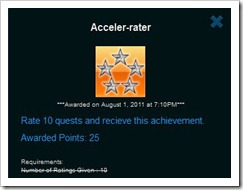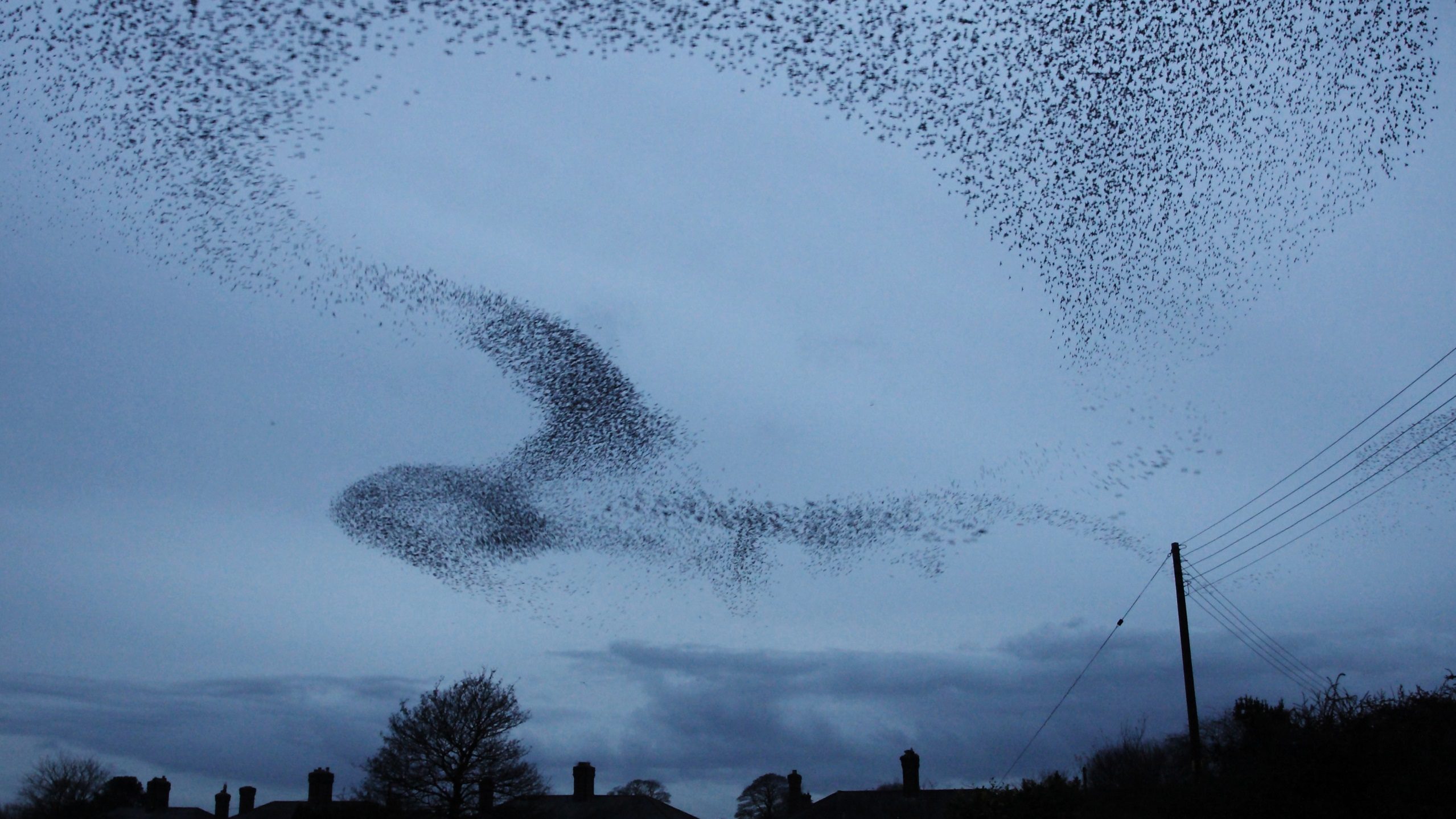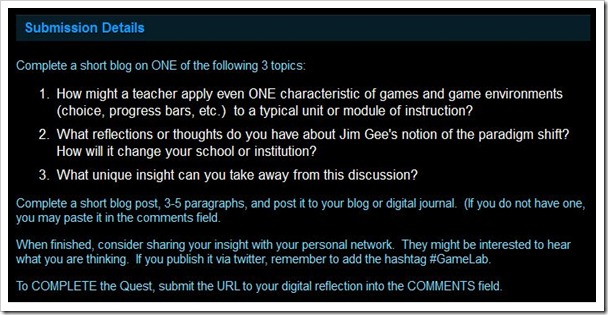So I am working through the second phase of tasks, preparing me to write a Quest and the submission task is right up my street.
Questing, gamification, is not a new interest for me, I have been interested in gamification before I even had a term for it. Back in March 2008 I wrote about quizzing and co-operative competition. I have tried teaching through edugames and used edugames to teach. I read and watch videos, even attended the occasional seminar. I have tried to create gaming experiences through Moodle, complete with badges and rewards and even set students the task of creating games to teach the curriculum with Kodu. Most recently, I have been teaching myself how to write text based adventures with Quest 5 before signing up for this summers course. In most of these examples, I have explored the role of the teacher but one area that has always interested me is the impact of ‘randomness’ or ‘uncertainty,’ but also
- a grading systems that works up, with every small success points are gained. Points make grades. Rather than working with a possible A+ and students submitting assignments only to gain a B?
- all marking without grade but rather an improvement scale. Students make significant progress get a +++ grade, some progress ++ grade, maintaining + with students not making or maintain progress get a +/- grade.
- the uneven distribution of rewards, so students get more for early completion, or less because they are more capable.
- the opportunity to risk more, to get more, you can answer a more difficult question but get double points (home 1 pt and away 3 pts) and finally.
- the ‘there is not enough to go round,’ limited XP points where everyone can be successful but XP are offered on a declining scale.
- Collective rewards, where when everyone is successful, everyone gets bonus rewards.
Elements of Uncertainty and Awards in 3D GameLab
Known rewards excite people but unknown or unseen rewards ignite and sustain engagement.
Rewards in education are a path much travelled. House points, merit and demerit points, individual and team or community competition. Post cards home, letters, commendations. Some teachers buy in, some don’t. Issue of consistency and what should or should not be awarded. Centralised systems, personalised systems, no system, electronic or paper based, are just a few of the debates I have listen or taken part in.
In gaming, BAA (Rewards – Badge, Achievements and Awards) are not discrete, their are part of the game-play. In more recent iOS monetisation strategies, it my experience, that you can now exchange hard earned cash for BAA and I wonder how long before our first student entrepreneur seeks to monetise their successes / knowledge in 3D GameLab? (Watch this space).
I complete support the use of RAA but I am particular interested the randomness of awards, ASWELL AS rewarding RAKs or random acts of kindness. It is all about randomness and I know its important. Here is a good real world example. If I but my wife flowers every Friday, I know she will appreciate them and it shows I love to buy her flowers. The Friday I forget to visit the florist, I feel a smuck and my wife feels just a little disappointed. If I buy my wife flowers every once in a while, every 6, 7, or 8 days but not regularly, she loves them no less, even more, we all love surprises right, and if I happen to forget one afternoon, I get visit the florist the next day and she is equally happy. Randomness is important.
 So I am playing at learning 3D GaneLab. Working towards an end, collecting XPs. I am learning, which I enjoy, and the points are just totting up. No big deal. Then I get an award I expected for completing a task. Nice. Soon after I got randomly rewarded, and I know I felt a warm fuzzy pride feeling. I didn’t expect it, I didn’t even initially observe another reward clock up, but when I did, I sought it out. Acceler-rater, a little corny, but thank you anyway. Would it be more motivating if it pop-out on the screen (3D GameLab 1.1). Would I be more surprised and therefore proud? Perhaps? Should other questers know of my success? That one is more debateable. Thoughts anyone? Officers, are you reading, what do you think? Mr Haskell? Tough call. I would advocate a tick box – keep your RAA personal / make your RAA public.
So I am playing at learning 3D GaneLab. Working towards an end, collecting XPs. I am learning, which I enjoy, and the points are just totting up. No big deal. Then I get an award I expected for completing a task. Nice. Soon after I got randomly rewarded, and I know I felt a warm fuzzy pride feeling. I didn’t expect it, I didn’t even initially observe another reward clock up, but when I did, I sought it out. Acceler-rater, a little corny, but thank you anyway. Would it be more motivating if it pop-out on the screen (3D GameLab 1.1). Would I be more surprised and therefore proud? Perhaps? Should other questers know of my success? That one is more debateable. Thoughts anyone? Officers, are you reading, what do you think? Mr Haskell? Tough call. I would advocate a tick box – keep your RAA personal / make your RAA public.
There is no reason why this can’t happen in every classroom. Set a marker and the first / all students to pass that marker get rewarded. For example, I set a quiz / task every week and occasionally I sent extension tasks which are purely optional. If the students complete all three extensions tasks (over a 7 week period) I sent a post card home. In fact I sent a post card home to a student that was not in my class, but had access to the online course (another reason not to limit access to your online courses)
As for RAKs – online or offline it really makes no difference. If someone, student or staff member delivers a RAK, recognise it. You will be surprised by the response it receives. You can even set up an award to allow the receivers to acknowledge the RAK. IMHO, powerful stuff. Ironically, as a teacher you have more opportunity than most to display RAKs.
I am presuming that one of the key facets of 3D GameLab is the ability to manage both the perceived ‘randomness’ and the recipient. More aside Skinner, we have a new rat box in town.
As for the new insight, I have a lot more to learning about the topic and will probably return to Jim Gee’s Edutopia video soon. Another great video on the topic was created by The Escapist - Gamifying-Education.
Now, if I was worried about my XPs I would have spent far less time on the topic. Is there a danger that depth of learning maybe impacted upon by the temptation of progress or XPs? There is a research project in there somewhere.
[qr_code_display]


Interesting reflections, Kristian! I’m still intrigued by the reward system and the limitless potential it seems to have that I’m still trying to unfold.
In our next phase of design, we do have some of your wishlist planned:
1. A running feed showing what is happening for players in gamelab as they get awards, finish quests, etc.
2. A leaderboard showing the top five players in a group.
3. Sounds (coming in a day or two) when you submit a quest or win an award.
4. A visual acknowledgement on your navigation that you’ve been given an award, so you don’t have to go digging for it.
Let me know what else you discover. I’m fascinated by the structuring of the reward system, by no means have it all figured out, and wondering if it will lose meaning over time as players gain experience in the platform.
Likewise, I am particular curious as to how and to what extent rewards in games can be successfully applied to learning behaviours (even though one could argument that game play is learning).
Wish list – I think the ‘shared experience’ is important, although I an unsure if making successes public is a path paved towards more motivation?
Leaderboard, indeed. I would also highly value a trending-board. So the top 5 and the top 5 based on the past x days activity. Some players / idea / concepts need time to ferment and it would be wrong to encourage speed over quality.
Sounds, great. I can still hear that high pitch sound as the high points score ‘space invader’ whizzed across the top of the arcade game. Some sounds stay with you.
Visual acknowledgement, rewards are only of value is their are ‘known.’ How they become known is an interesting study I am sure. Within game, via email, text, by a game administrator?
Another thought I have mulled over is reverse scoring or progress. Where the quest is given ‘life’ and each completed quest drains the life of the game.
Your final comment strikes a cord. When supporting GameLab for education how much of the platrform should be revealed in the early stages? How much can the platform rewards system me ‘tweaked’ but still have impact. EG simple renaming rewards and achievements? Is there a need to have an overview of a group of courses, and therefore mega rewards.
What is the longevity of the platform and will the ‘sparkles’ factor wear off? It is possible the 3DGameLab could be the curriculum, but it could also be a part of the curriculum, or part of the curriculum for certain topics or interventions. Lots to think over.